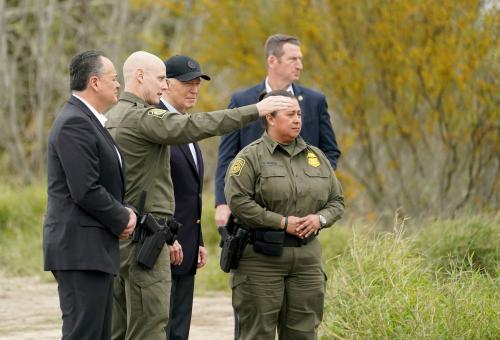Summary
By virtue of its size, growth, and relative youth, the Hispanic population will have a growing impact on all policy matters related to the family. This impact will be large and distinctive. The growth of the Hispanic population has already slowed the decline of the two-parent parent family in the United States as immigration produces a steady flow of young adults with a higher propensity to marry than their native-born peers, both Latino and non-Latino. But, immigration, particularly under current policies, is also producing a disproportionate number of Hispanics who are geographically separated from their spouses. The dynamics shaping the Hispanic family are both complex and fluid. Within the Hispanic population there are notable differences in the prevalence of some key behaviors. Of greatest concern is the finding that births to women who are unmarried are more common among native-born Latinos than foreign born Latinos. Such differences are especially significant for the long term because a large and growing share of the youth population is made up of the native-born children of immigrants. Survey data shows that a powerful process of acculturation is taking place among immigrants and their offspring which produces an erosion of the strong sense of family evident among recent immigrants in favor of attitudes similar to those of non-Latinos in the U.S. population.
The Hispanic Family
The family is a complex and important social structure in any population, but it is especially complex and increasingly important in the Hispanic population. Latinos account for all of the growth in the number of young adults, those of prime marrying and childbearing years. Indeed absent the Hispanics, the U.S. population would be shrinking in the 20- to 35-year-old age bracket. The prime sources of Hispanic population growth are immigration and high fertility among immigrants. As a result, marriages, childbearing, and household formation often take place in the cauldron of change that is migration. For most Latinos, families are made and broken amid transformations in culture, economic footing, civic status, and identity. Any consideration of policy consequences has to take account of this very powerful, very particular context.
Hispanics are a diverse people, and rapid demographic growth is making them only more diverse. Immigrants come with a range of talents and abilities. They come from a variety of places, and they come under a variety of circumstances. Once in the United States some live in densely Latino communities where civic society and public institutions geared towards the immigrant experience are well-established while others venture into new settlement areas where Latinos are a sparse presence. Meanwhile, the social, political, and legal backdrop is shifting as the host society comes to terms with the influx of newcomers. And finally, aside from immigrants and their offspring, there are also many millions of Latinos who trace their roots in this country back multiple generations and who have their own varied expressions of American culture and mores.


